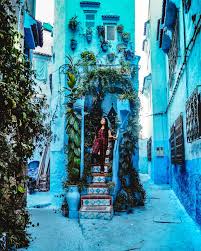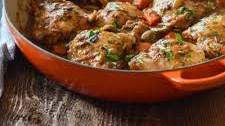Essential Things to Know Before Travelling to Morocco
Planning a trip to Morocco? This North African gem is a land of vibrant markets, stunning landscapes, and rich cultural heritage. Before you embark on your Moroccan adventure, here are some key things to keep in mind:
Cultural Sensitivities
Morocco is a Muslim-majority country with conservative values. It’s important to respect local customs and traditions. Dress modestly, especially when visiting religious sites or rural areas. Public displays of affection should be avoided.
Language
Arabic is the official language of Morocco, but French is widely spoken, especially in urban areas and tourist hotspots. English is also increasingly understood in the tourism industry. Learning a few basic Arabic phrases can enhance your experience.
Currency
The official currency of Morocco is the Moroccan Dirham (MAD). While credit cards are accepted in many establishments, it’s advisable to carry cash for smaller purchases and when visiting markets or remote areas. ATMs are readily available in cities.
Bargaining
Haggling is a common practice in Moroccan markets (souks). When shopping for souvenirs or goods, be prepared to negotiate prices with vendors. Approach it as a friendly interaction rather than a confrontation, and enjoy the process of bargaining.
Food and Drink
Moroccan cuisine is a delight for food lovers, with dishes like tagine, couscous, and mint tea being popular staples. Be cautious about drinking tap water – opt for bottled water instead. Street food can be delicious but choose reputable vendors to avoid stomach issues.
Transportation
Morocco has a well-developed transportation network that includes trains, buses, and taxis. Trains are efficient for longer journeys between cities, while grand taxis are shared vehicles used for shorter trips within regions. Private taxis are also available but negotiate fares beforehand.
Health Precautions
Before travelling to Morocco, ensure you are up-to-date on routine vaccinations such as measles and tetanus. Depending on your travel plans, additional vaccines like hepatitis A and typhoid may be recommended. It’s wise to carry basic medications for common ailments.
Safety Tips
Morocco is generally safe for tourists, but like any destination, it’s important to remain vigilant and take precautions against petty theft or scams. Keep your belongings secure, avoid isolated areas at night, and trust your instincts if something feels off.
By familiarising yourself with these essential tips before heading to Morocco, you’ll be better prepared to immerse yourself in the beauty and diversity of this captivating country while ensuring a smooth and memorable travel experience.
Essential Tips: 8 Key Questions Answered Before Travelling to Morocco
- What should I wear in Morocco?
- Is it safe to travel to Morocco?
- Do I need a visa to visit Morocco?
- What vaccinations do I need before travelling to Morocco?
- Can I drink tap water in Morocco?
- How should I handle currency and payments in Morocco?
- What are the best ways to get around in Morocco?
- Are there any cultural customs or etiquette I should be aware of in Morocco?
What should I wear in Morocco?
When visiting Morocco, it’s essential to dress modestly and respectfully, especially in consideration of the local culture and customs. For both men and women, clothing that covers the shoulders, chest, and knees is recommended. Loose-fitting garments made from breathable fabrics are ideal for the country’s varying climates. Women may opt for long skirts or trousers paired with tops that offer adequate coverage. Scarves or shawls can be useful for added modesty when visiting religious sites. Men can wear trousers or knee-length shorts paired with shirts or t-shirts. Embracing traditional Moroccan attire like djellabas can also be a culturally enriching experience. By dressing appropriately, you not only show respect for Moroccan traditions but also ensure a comfortable and hassle-free travel experience in this fascinating destination.
Is it safe to travel to Morocco?
Travelling to Morocco is generally considered safe for tourists, with the country welcoming millions of visitors each year. Like any destination, it’s important to exercise caution and be aware of your surroundings. Petty theft can occur in crowded areas, so it’s advisable to keep your belongings secure. Additionally, it’s recommended to avoid isolated areas at night and be cautious of scams targeting tourists. By staying vigilant and following common-sense safety practices, you can enjoy the beauty and hospitality that Morocco has to offer while minimising any potential risks.
Do I need a visa to visit Morocco?
Travellers visiting Morocco often wonder, “Do I need a visa to visit Morocco?” The good news is that citizens of many countries, including the UK, EU member states, the US, Canada, Australia, and New Zealand, do not require a visa for stays of up to 90 days for tourism purposes. However, it’s essential to check the specific visa requirements based on your nationality and the purpose of your visit. For longer stays or other types of travel such as work or study, obtaining the necessary visa in advance is recommended to ensure a smooth entry into this captivating North African destination.
What vaccinations do I need before travelling to Morocco?
Before travelling to Morocco, it is advisable to ensure that your routine vaccinations are up-to-date, including measles, tetanus, and influenza. Additionally, depending on your travel plans and personal health history, certain vaccinations may be recommended for Morocco. Common vaccines to consider include hepatitis A and typhoid, which can help protect against food and waterborne illnesses prevalent in the region. It is best to consult with a healthcare provider or travel medicine specialist at least 4-6 weeks before your trip to discuss any specific vaccination requirements based on your itinerary and individual health needs. Taking these preventive measures can help safeguard your health and enhance your enjoyment of the Moroccan experience.
Can I drink tap water in Morocco?
When travelling to Morocco, it is advisable to avoid drinking tap water due to the differences in water treatment standards compared to Western countries. To prevent any potential stomach issues, it is recommended to opt for bottled water, which is widely available in shops, restaurants, and hotels across the country. Embrace the local custom of enjoying refreshing mint tea or freshly squeezed orange juice as safe alternatives to stay hydrated during your Moroccan adventures.
How should I handle currency and payments in Morocco?
When it comes to handling currency and payments in Morocco, it’s advisable to carry a mix of cash and cards. The official currency is the Moroccan Dirham (MAD), and while credit cards are widely accepted in hotels, restaurants, and larger stores, it’s recommended to have cash on hand for smaller purchases, taxis, and markets where card payments may not be possible. ATMs are readily available in urban areas for withdrawing cash in Dirhams. When paying with cash, it’s helpful to have small denominations as some vendors may not have change for larger notes. Remember to notify your bank of your travel plans to avoid any issues with card transactions abroad. By being prepared with a combination of cash and cards, you can navigate currency and payments smoothly during your visit to Morocco.
What are the best ways to get around in Morocco?
When exploring Morocco, there are several convenient ways to get around the country. The most popular and efficient mode of transportation for longer distances is by train, offering comfortable and reliable services between major cities. Buses are also a cost-effective option for travelling between towns and regions, with various bus companies operating routes across the country. In urban areas, taxis are readily available and can be hailed easily for short journeys or private tours. For a more adventurous experience, consider hiring a car to explore Morocco’s diverse landscapes at your own pace, but be prepared for varying road conditions. Ultimately, the best way to get around in Morocco depends on your itinerary, budget, and comfort preferences.
Are there any cultural customs or etiquette I should be aware of in Morocco?
When travelling to Morocco, it’s important to be mindful of cultural customs and etiquette to show respect for the local traditions. Modest dress is recommended, especially when visiting religious sites or rural areas. Public displays of affection should be avoided, as physical intimacy in public is not common in Moroccan culture. Greeting others with a handshake and using your right hand for gestures or when accepting items is considered polite. It’s also customary to remove your shoes before entering someone’s home. By being aware of and respecting these cultural customs, you can enhance your experience in Morocco and foster positive interactions with the local community.



